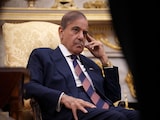Separatist leader Yasin Malik once pleaded for his life before Pakistan's intelligence agency Inter-Services Intelligence (ISI) and terror group Lashkar-e-Taiba (LeT), top intelligence sources disclosed to NDTV.
The episode dates back to 2013, during a turbulent period in Jammu and Kashmir's separatist movement.
Intelligence inputs accessed by NDTV showed that Lashkar operative Hilal Dar from Sopore was deputed in 2012 to assassinate Malik. Dar, acting on ISI's directions, conducted a video reconnaissance of Malik's residence at Maqbool Manzil in Srinagar's Maisuma locality.
The plot, sources said, was hatched after Pakistan grew suspicious that Malik was secretly working with Indian agencies. The killing of Molvi Showkat, a close associate of Malik, in a bicycle IED blast near his residence had already deepened Pakistan's distrust of the Jammu and Kashmir Liberation Front (JKLF) chief.
Dar was arrested in Srinagar after a tip-off by the Jammu and Kashmir Police late in 2012. In his confession, he claimed the ISI-Lashkar jointly wanted to eliminate Malik since he was found to be engaged and working for India's Intelligence Bureau.
The turning point came in 2013, when Afzal Guru was hanged in India for his role in the Parliament attack. Malik, who was then in Pakistan, immediately organised protests against India. Among those joining him was Lashkar founder Hafiz Saeed. The sources revealed that during these demonstrations, Malik privately begged Saeed for mercy, promising that he would never again cooperate with Indian agencies and would instead follow ISI's orders.
After Malik returned from Pakistan that same year, the Indian government cancelled his passport. His wife, Mushaal Malik, a Pakistani national, was also denied a visa. Soon afterward, Malik-alongside Syed Ali Shah Geelani and Mirwaiz Umar Farooq - helped form the Joint Resistance Leadership (JRL), an umbrella separatist platform. The JRL spearheaded mass protests, shutdowns, stone-pelting, and even targeted schools, plunging Kashmir into years of unrest.
In 2017, the National Investigation Agency (NIA) launched a sweeping crackdown on the separatist network, arresting several of its leaders and middle-men in Kashmir and Delhi. Two years later, the Centre banned the JKLF and arrested Malik. Since 2019, he has been lodged in Delhi's Tihar Jail on terror funding charges.
These revelations offer a rare glimpse into the desperate maneuvers of one of Kashmir's most prominent terrorist-turned-separatist and the shadowy influence of Pakistan's intelligence apparatus on the Valley's decades-long unrest.















